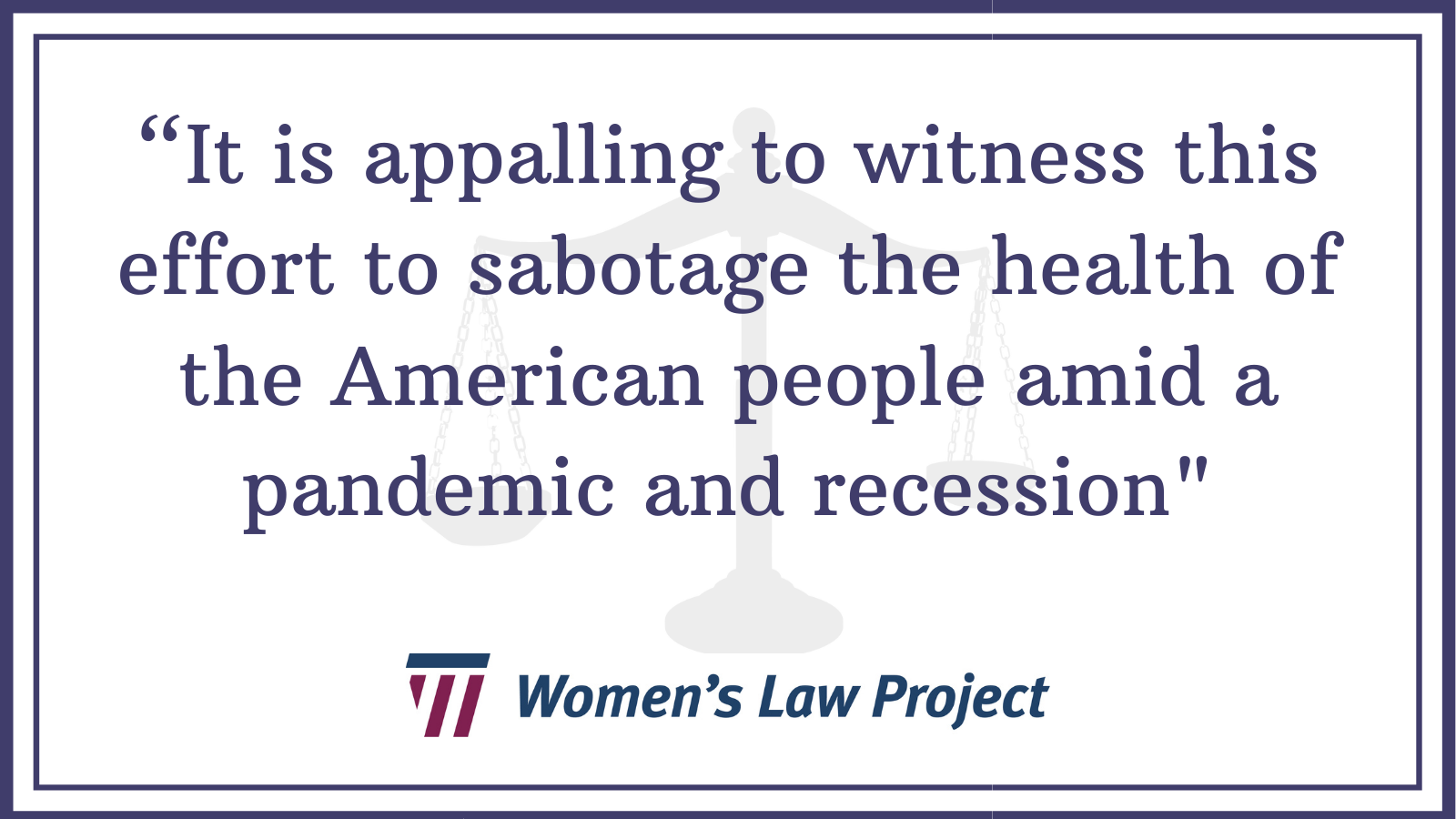
This morning at the U.S. Supreme Court, the federal government and 18 GOP state attorneys general, who all have access to comprehensive healthcare paid for by American citizens, argued in favor of eliminating access to affordable comprehensive healthcare for those citizens amid an unprecedented pandemic and economic depression.
The case is called Texas v. California. Read our case explainer for an overview of the parties and related legal arguments.
WLP joined an amicus curiae (“friend of the court”) brief filed by National Women’s Law Center on behalf of 80 additional organizations that focused on the profound negative effect overturning the ACA would have on women’s health.
“Today we witnessed weak arguments asserted in a partisan effort to overturn the Affordable Care Act, the first federal law to broadly prohibit sex discrimination in health care,” says WLP Director of Policy & Advocacy Amal Bass. “It is appalling to witness this effort to sabotage the health of the American people amid a pandemic and recession that is already disproportionately harming women, and especially Black and brown women. The very same people keeping our country going as essential frontline workers are most likely to lose access to healthcare if this effort is successful.”
Research shows if the ACA is overturned, 21 million Americans will lose their insurance, and millions more will lose key consumer protections such as the provision that prohibits insurance companies from denying coverage based on pre-existing conditions.
A ruling is expected by June 2021, when these numbers will likely be even higher due to both pandemic-related unemployment and the fact that millions more Americans will have a newly acquired pre-existing condition than when this case began: COVID-19. Without pre-existing conditions protections, it’s possible a person seeking care for a health crisis such as cancer could have their health insurance cut off if coronavirus antibodies are detected in their systems.
Even without COVID-19, the consequences of overturning the ACA would be dire. If the ACA is overturned, coverage of mental health care, treatment for substance use disorders, maternity care, and emergency services—and the rest of the Essential Health Benefits–can be eliminated with no correlating reduction in cost. Insurance companies in some states without strong gender-equality protections would once again be allowed to charge women more money for health insurance based solely on their sex (a practice known as “gender rating”). Insurers could deny people with pre-existing conditions coverage, and consider pregnancy and domestic violence pre-existing conditions.
Eliminating the ACA would also end Medicaid expansion, which research shows could deprive millions of people of their health insurance, reduce access to care, increase premature deaths, increase maternal mortality, increase infant mortality, and increase medical debt.
Frontline workers, the workers whose lives and families are most at risk during the COVID-19 pandemic, are often low-wage earners without access to employer-based health insurance and disproportionately Black and Hispanic. Before the ACA, uninsured rates for Black and Hispanic people were much higher than for white people, reflecting barriers to coverage that are legacies of systemic racism. The ACA significantly narrowed these gaps.
Estimates made prior to COVID-19 projected nearly 1 in 10 Black Americans would lose health insurance if the ACA is overturned, compared to 1 in 6 whites. Now, it is estimated that 1 in 5 Black people and 1 in 3 Hispanic people would be uninsured.
The uninsured rate in Pennsylvania is currently 7%. Research estimates that if the ACA is overturned, the number of uninsured Pennsylvanians will increase among the non-elderly by 143%, with the biggest leap (among the non-elderly) affecting people aged 19 to 26 years old.
The Women’s Law Project is a public interest law center in Pennsylvania devoted to advancing and defending the rights of women, girls, and LGBTQ+ people in Pennsylvania and beyond.
November 2020: Our physical offices are still closed due to the pandemic but we are OPEN and working to serve your needs. Contact us here. Sign up for WLP’s Action Alerts. Stay up to date by following us on twitter, Facebook, and Instagram.
THE MASKED BALL: Our annual Philadelphia gala is on November 20! Please join us for this virtual celebration to support gender justice in Pennsylvania. Information & registration here.


